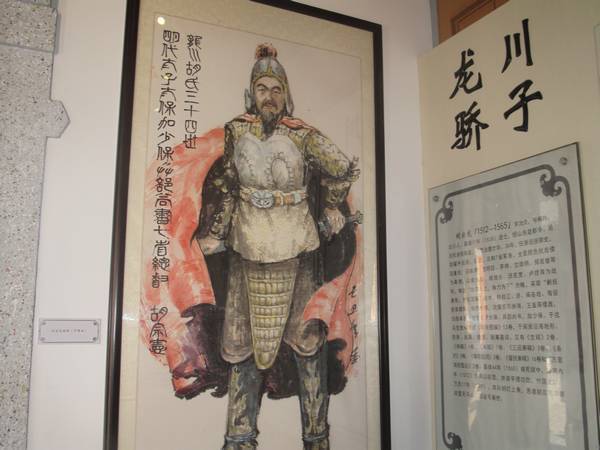|
 |
|
Longchuan is the hometown to Hu Zongxian, a minister of national defense and governor of Zhejiang and Fujian provinces, who is known for driving Japanese pirates from China's eastern seaboard. (By Le Qin)
|
Hu Zongxian (1512-1565), a member of the 34th generation of Hus, in Longchuan, Anhui province, more famous it seems than Hu Fu, is memorialized on the Yishi Shangshu Archway for his ministerial work and his defending China from Japanese pirates.
Hu Zongxian's mother died when he was only 11 so he was raised by his uncle and received his education at Longfeng Temple, on Longxu Mountain where he also studied kung fu. In 1538, he was successful in the highest imperial examination, and over the next few years rose to be governor of Zhejiang province, thanks to his political successes.
Under the reign of the the Ming Dynasty's Jiajing emperor (1522-1566), the southeastern part of China was often under attack by Japanese pirates, so Hu stepped in as commander of the army to stop the invasion. He analyzed the relative strengths of the enemy and the defenders and took some lessons from previous military commanders, and decided to come up with a battle plan.
In April 1555, when Hangzhou and Jiaxing, in Zhejiang province came under attack, Hu was forced to withdraw because of a lack of troops, so he ordered his soldiers to dress as common folk and escape, leaving behind toxic grains and wines. The enemy was delighted at their success, but around 700 enemy soldiers died from poisoning, allowing Hu time to get reinforcements.
After many battles, the pirate problem was solved, but the heroic commander had suffered many setbacks in his life. He was attacked repeatedly by his political enemies and, ultimately, out of desperation, committed suicide, in 1565, after declaring his innocence in writing. He was only 54 years of age.
Decades later, Hu was rehabilitated and his contributions were memorialized by later generations, including the common folk.
By Le Qin
Edited by Roger Bradshaw, Huang Pei
|